January 25, 2021
How To Get Your First Pull-Up: A Step-By-Step Guide
The pull-up has long been one of the main lifts in regards to testing pound for pound strength. But, getting to the point of being able to do a pull-up can be a very long, and grueling road. The pull-up had once been explained to me as just grabbing the bar and simply pulling myself up. Sounds simple and easy, right? Well it’s not. There’s much more that goes into obtaining your first pull-up. Follow the step-by-step guide on how to get your first pull-up below, and you’ll be repping them out before you know it!
Nutrition
Before we step into the gym, we need to get into the kitchen. The path to your first pull-up starts here. The heavier a person is, the harder it’s going to be for that person to perform a pull-up. Getting control of yourself here is the make or break moment for people with a goal of pull-ups. You will never train hard enough to overcome poor eating habits. If you’ve already overcome this stage and nutrition is not an issue, then wonderful, it’s time to hit the gym.
Rows
Rows are a great way to start building the muscle and strength needed to achieve your first pull-up, and luckily there are multiple rows at your disposal to achieve this. Below is a list of rows, and the order in which I would suggest progressing through them.
The 3-Point Row
The first row I would suggest is the 3-point row. This is a great way to start building the muscle and strength that will be needed later on. It also provides a little more stability for the back for beginners who may have lower back issues. To perform this row, follow the checklist below:
- Stand with feet shoulder width apart
- Lean forward placing one hand on a flat surface while keeping a straight back
- Grab a dumbbell/kettlebell with the opposite hand
- Pull the weight up to your side, while keeping your elbows in close to the body
- Slowly return to the starting position
DB Bent-Over Row
After you’ve gained some strength and have learned how to control your body while under load in the bent over position, it’s time to remove the surface that your hand was using as support. By doing this we’ll be able to start building strength and support in the lower back. Follow these steps:
- Stand with feet shoulder width apart
- Lean forward, this time grab a dumbbell/kettlebell in both hands
- Pull the weight up to your side while keep elbows in close
- Slowly return to the starting position
Bodyweight Row
For bodyweight rows, you can use either a barbell set up on j-hooks attached to a squat rack, or some type of suspension trainer (rings for example). Whichever you decide to use, the set up will be close to the same. Start by laying on the floor underneath the bar or suspension trainer. From here, reach up and grab whichever you are using with your grip wider than shoulder width. Continue through with this checklist:
- Pull yourself up onto your heels
- Back and hips are straight, with no sagging
- Shoulders are braced
Once you are ready, start pulling your body to either the bar or the rings while keeping your elbows in close. Before moving on from the bodyweight rows make sure you can perform multiple sets and 10-12 reps
Pull-Ups
After progressing through the different variations of rows, it’s time to move on to the next step! Achieving that pull-up still may be a little out of reach, so in order to replicate the motion we’re going to go through some regressions of the pull-up. Doing so will give you the upper hand in reaching the strength needed to reach the ultimate goal of getting your first pull-up. Let’s go!
Assisted Pull-Ups
After you can successfully complete multiple sets of 10-12, full range of motion bodyweight rows, it’s time to advance to the pull-up bar. BUT, we still have a couple steps before we advance to full pull-ups. As we begin on the pull-up bar, we will start with a band assisted pull-up. Wrap a band through the pull-up bar so that it is dangling in front of you. Stretch it down and place one or two of your feet in it depending on the amount of assistance needed (two feet for more assistance; one foot for less assistance). Grab the pull-up bar and start pulling your body to the bar. While doing this remember these cues:
- Tuck shoulders back
- Keep the rest of the body tight
- Instead of pulling yourself up, pull the bar to you
- Expand your chest the closer you get to the bar
- Control your body as you lower back to the starting position
It is important during this phase to keep your patience. If people get stuck at a certain phase of pull-up training for a long period of time, it’s usually during this phase. This is the first part of the training where we are using the pull-up bar. It takes time to progress past this part. Patience is key. Keep at it!
Eccentric Pull-Ups
If you’ve been doing the assisted pull-ups for a while, and really feel that it’s time to progress, then this is the next phase. To do this, I recommend using a chair or box of some sort to stand on, as we want to start at the top of the movement. So, with our chest at the bar we will slowly lower ourselves back to the ground. Stand back on the chair or box, and repeat.
Pull-Ups
Here it is! The moment you have worked so hard for! Jump up, grab the bar, get into the ready position, and remember to:
- Tuck shoulders back
- Keep rest of body tight
- Pull the bar to you; not you to the bar
- Expand your chest to the bar
- Slowly lower yourself to the ground
- Celebrate!
Your first pull-up! Take a moment to congratulate yourself. A lot of hard work went into this process. It’s not easy, so don’t just shrug it off. Take this moment and be proud of yourself. A whole new world of training has just opened up for you!
If you enjoyed this information, please check out our other fitness & health articles here:
https://hybridfitnessgym.com/articles/
Swing over to our YouTube channel to check out our latest videos here:
Hybrid Fitness YouTube Channel

Brandon started working out as an athlete in high school, striving to push his limits and reach his full athletic potential. As he spent more and more time working on his own goals, he found a passion in the science of strength & conditioning, and using that new-found knowledge to help others. Brandon is exceptional at giving his clients the extra push to get stronger in a safe manner, while going above and beyond to making sure they feel comfortable and safe.
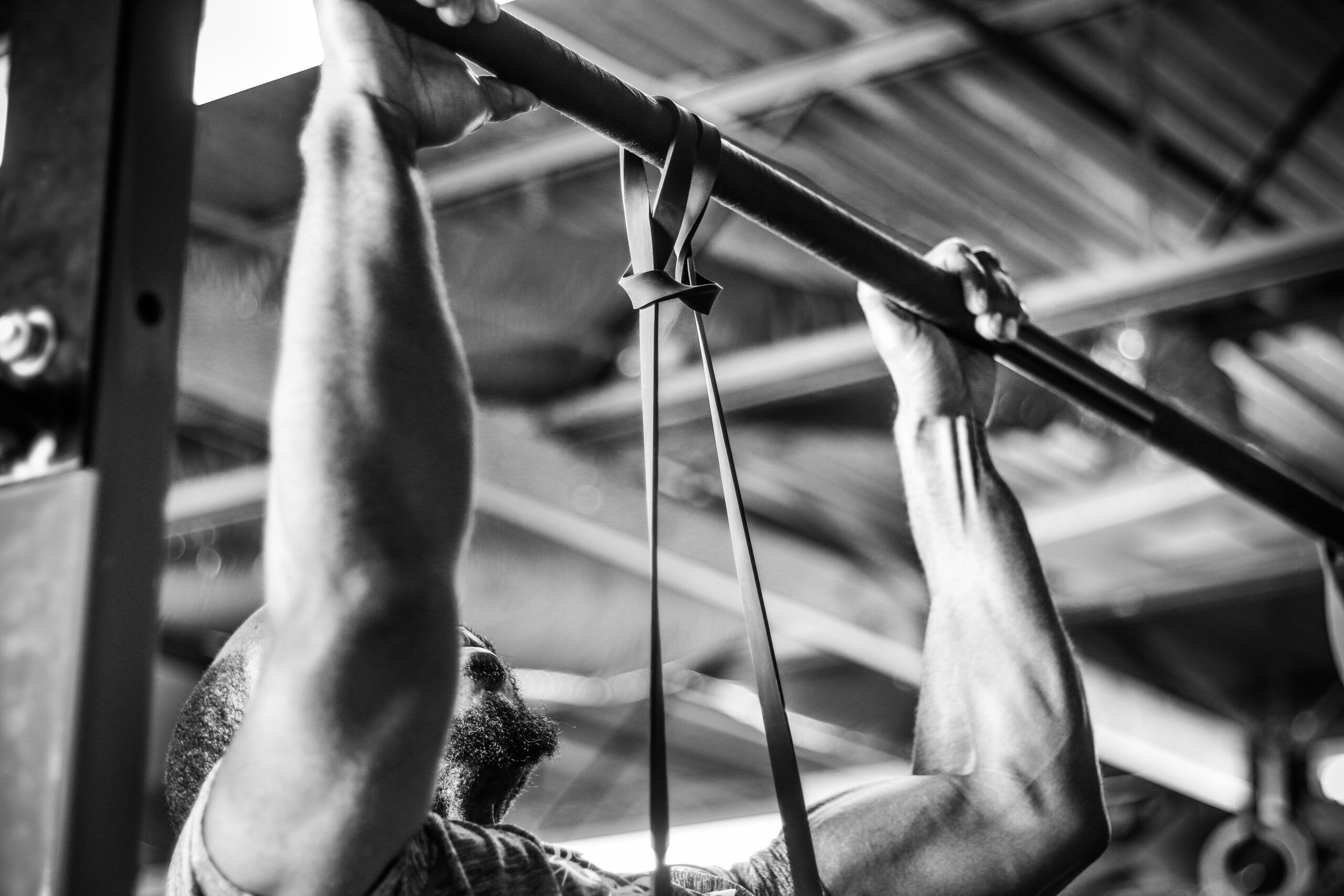

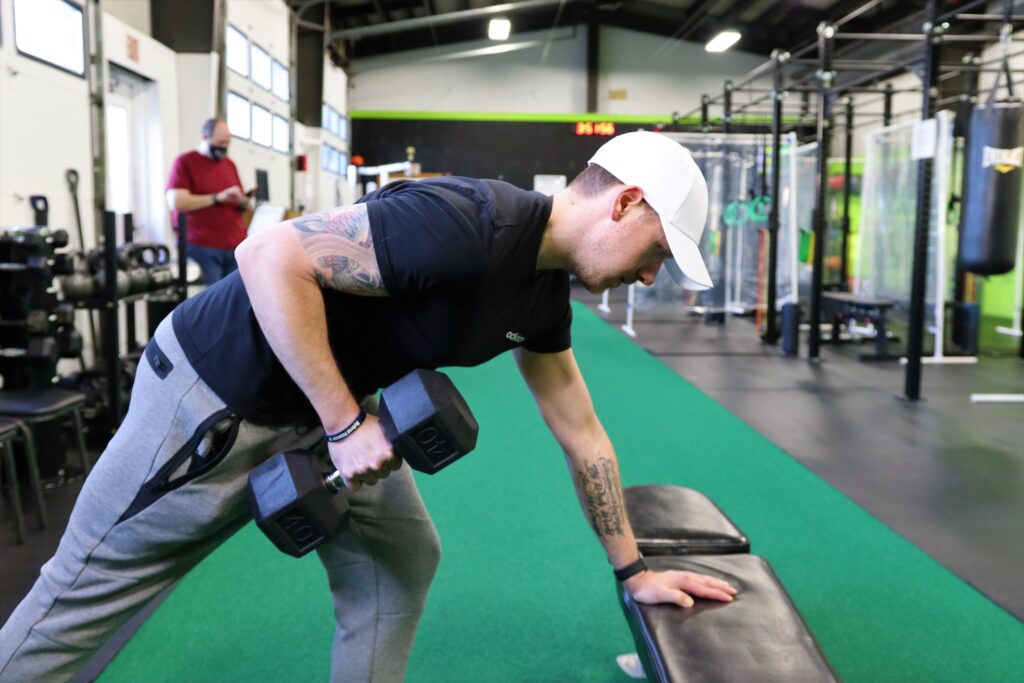
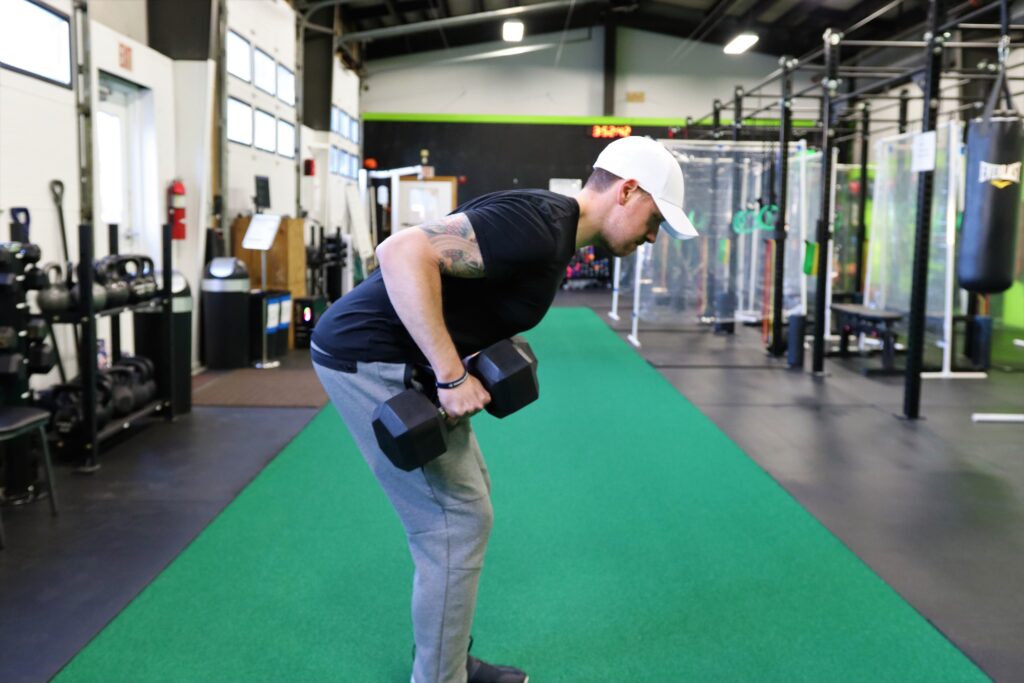
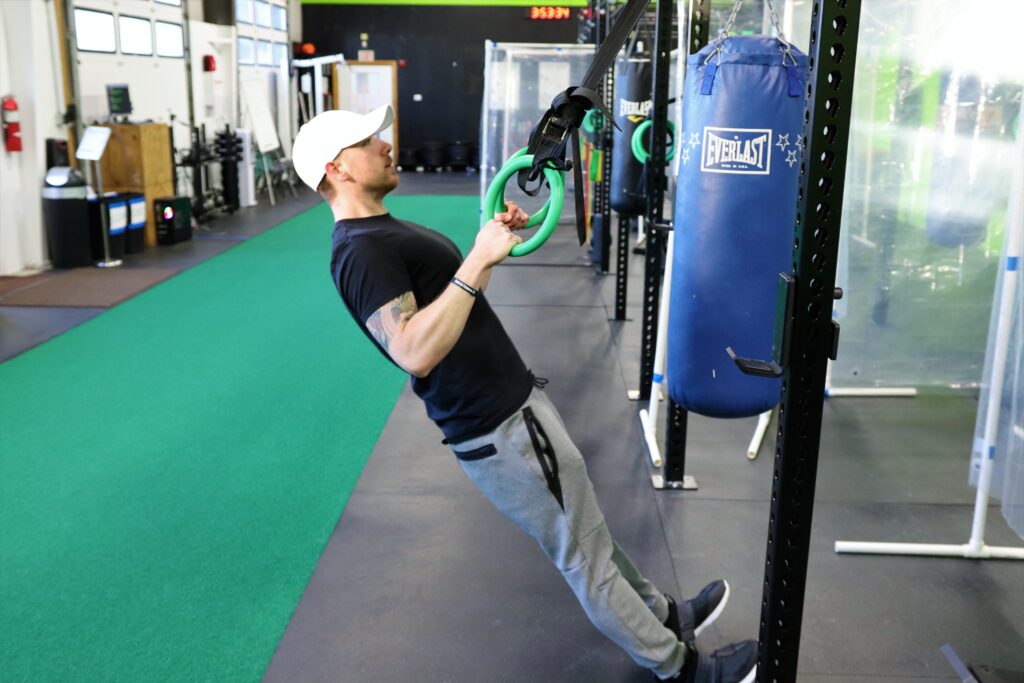
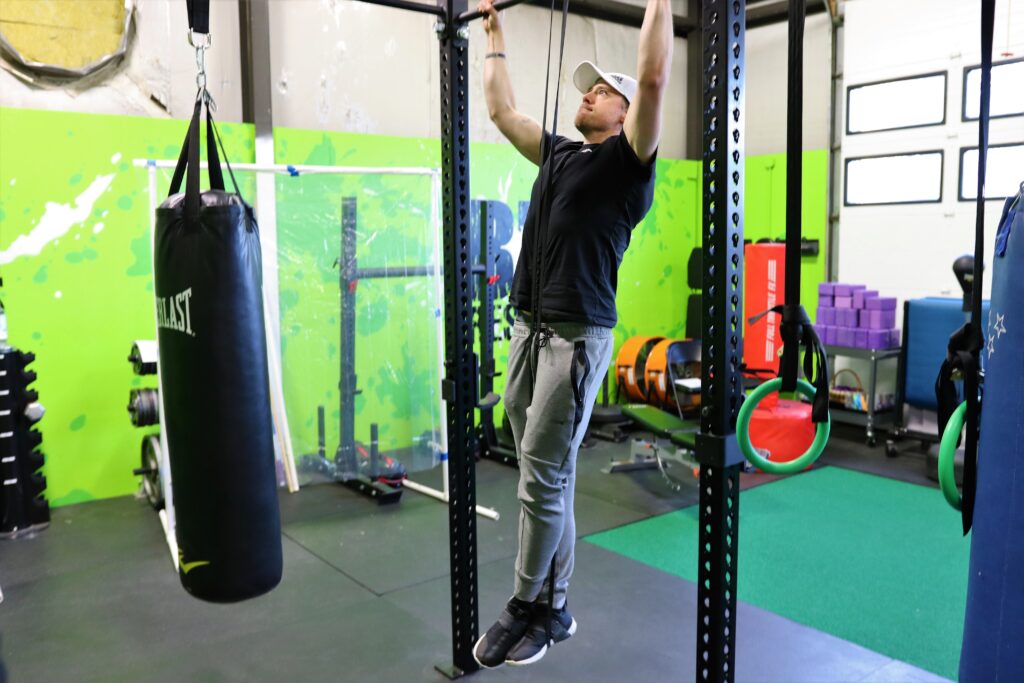
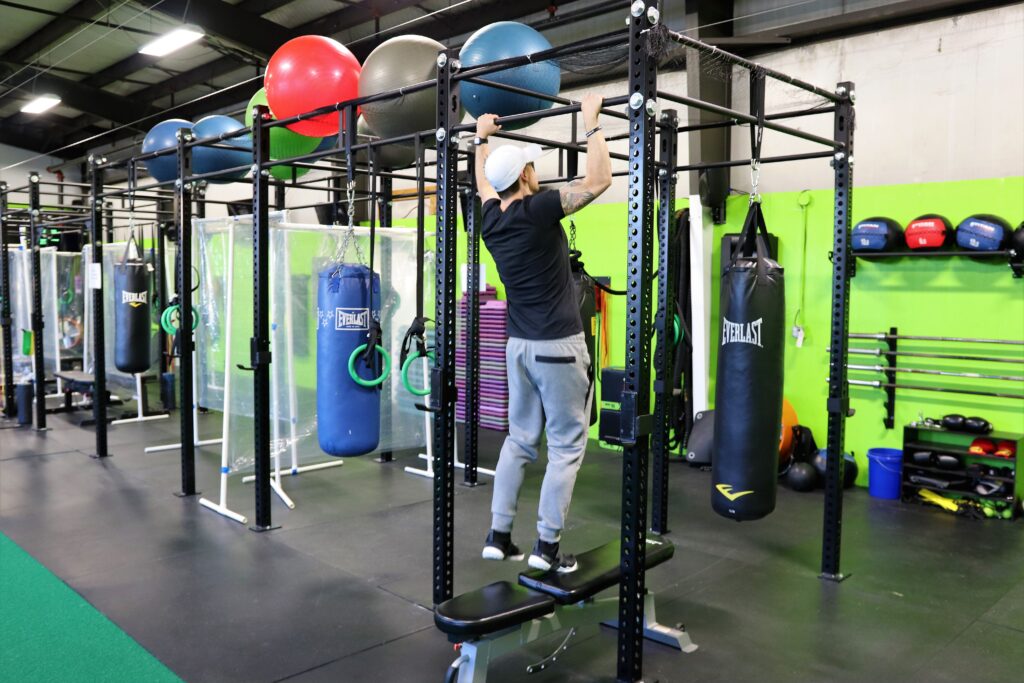
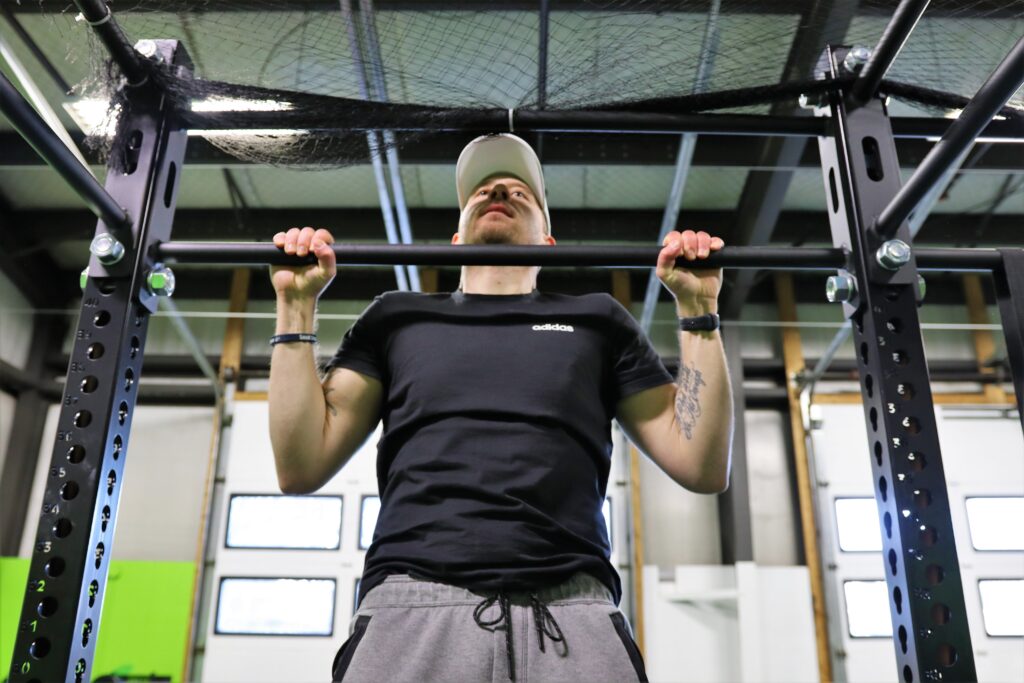

0 Comments
Leave A Comment